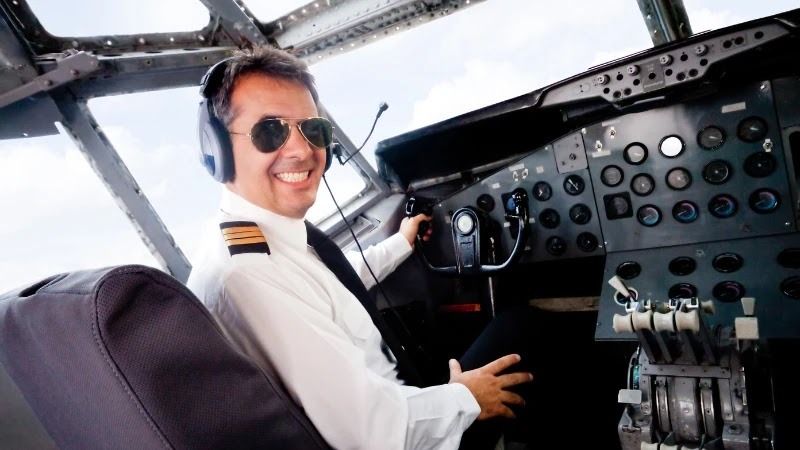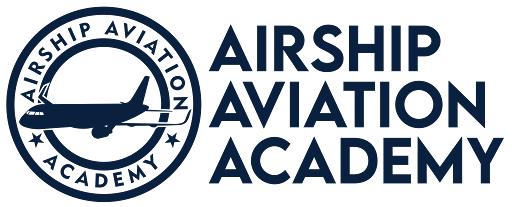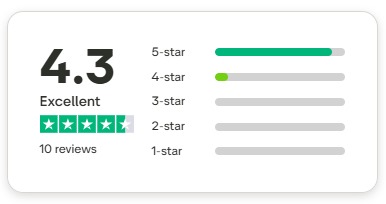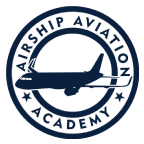Currently Empty: ₹0.00

The open sky beckons and your dream of a soaring career is within reach. But how do you navigate the next step, landing your first pilot job after training? While the initial training equips you with the technical skills, transitioning into the professional world requires a strategic approach.
This comprehensive guide unveils 5 proven strategies to help you secure that coveted pilot position soon after completing your training. We will delve into each strategy, explore actionable steps you can take, and provide valuable resources specific to the Indian aviation industry, including aviation courses in Delhi and information on the pilot written test.
Strategy 1: Develop Soft Skills
Beyond technical flying skills, airlines value pilots with strong, soft skills that contribute to a safe and efficient flight crew. Here’s how to cultivate these soft skills:
- Communication and Teamwork: Hone your communication skills to clearly inform and collaborate effectively with co-pilots, cabin crew, and air traffic control.
- Leadership and Decision Making: Develop strong leadership qualities to inspire confidence and make sound decisions under pressure.
- Situational Awareness and Problem Solving: Sharpen your awareness to anticipate potential problems and develop effective solutions during unexpected situations
- Stress Management and Resilience: Cultivate stress management techniques to remain calm and collected in high-pressure environments.
Get to learn more about A320 Pilot Recruitment.
Strategy 2: Crafting a Stellar Pilot Resume- Your First Impression
Your resume is your passport to a pilot’s job. Here’s how to create a compelling one:
- Tailor Your Resume: Don’t submit a generic resume. Adapt it for each job you apply for, highlighting specific skills and certifications mentioned in the job description.
- Focus on key Components: Your resume should showcase your pilot qualifications, including: contact information, pilot summary or objective, certifications and ratings, flight time, work history, education, training and professional affiliations.
- Showcase your Achievements: Use numbers to showcase your accomplishments. For example, instead of simply saying,” Proficient in aircraft systems,” mention the specific number of hours you have spent training on different aircraft types. Proofread meticulously! Typos and grammatical errors can create a negative impression.
Strategy 3: Building Your Flight Time- Experience is King
While a Commercial Pilot License is the minimum qualification for most entry-level jobs, airlines often favor pilots with additional experience. Here show to increase your flight time:
- Become a Flight Instructor: Earning your certified flight instructor certificate allows you to train student pilots, building your flight hours and imparting valuable knowledge.
- Co-Pilot Opportunities: Consider co-pilot positions with smaller airlines or cargo carriers. While these may not be your dream job, they offer valuable experience and increase your total flight time.
- Flight Sharing Programs: Look into flight sharing programs where you can co pilot private aircraft, adding valuable multi engine experience to your resume.
Strategy 4: Mastering the Interview
Pilot interviews are often multi-faceted, involving technical assessments, simulations, and personality testing. Here are some tips to ace your interview:
- Research Common Pilot Interview Questions: Anticipate questions related to aviation regulations, technical knowledge, emergency procedures, and leadership skills. Practice your answers beforehand, focusing on clear, concise, and confident delivery.
- Practice Simulator Tests: Many airlines incorporate flight simulator assessments during interviews. Familiarize yourself with the type of simulator you might encounter and practice basic maneuvers.
- Prepare for Personality Tests: Airlines often use personality tests to assess your suitability for the role. Be honest and consistent in your responses.
Strategy 5: Utilize Online Resources for Job Hunting
Volunteering within the aviation industry can demonstrate your passion and dedication while potentially leading to flight time or networking opportunities. Here are some ideas:
- Offer Support to Local Flying School: Volunteer at a Delhi-based flying school by assisting with administrative tasks or helping with aircraft maintenance.
- Community Outreach Programs: Participate in aviation outreach programs that promote aviation careers to younger generations. This allows you to develop communication skills and build relationships within the industry.
Get a Pilot Job with Online Airline Courses in Delhi:
Looking to pursue your online ground classes for the pilot entrance exam in Delhi? Here are a few best online airline classes:
- Airship Aviation: The Airbus A320 is a dominant aircraft in the aviation industry, and a type rating for it unlocks promising career paths for pilots. Delhi, a well established center for Aviation Training Academy in India, presents various options for aspiring pilots. Among these, Airship Aviation stands out as a provider of pilot training.
- IFA: Offers a comprehensive range of pilot training programs, from private pilot license to airline transport pilot license.
- Aero Guru: An aviation academy known for its rigorous online programs and potential opportunities.
- KP Aviation: Offers high quality pilot training programs with a global network and potential partnerships with airlines.
Pilot Written Test
The pilot written test, conducted by the DGCA, assesses your theoretical knowledge of aviation regulations, aircraft systems, and flight procedures to prepare for the test:
- DGCA Study Material: Utilize the official study material provided by the DGCA, which covers all examinable topics.
- Pilot Training Schools: Many flying schools offer dedicated courses and mock tests specifically designed for the DGCA pilot written test.
Of course, it’s important to understand that consistency is key. Dedicate regular study time to solidify your knowledge and refine your test-taking skills.
Conclusion
Landing your first pilot job is an exciting culmination of years of dedication and hard work. By implementing these five proven strategies, building your network, crafting a compelling resume, accumulating flight time, mastering the interview process, and exploring airline jobs, you will significantly increase your chances of securing your dream job and taking flight in the world of aviation. So, take a deep breath, leverage the resources available, and confidently embark on your journey to becoming a successful pilot!











